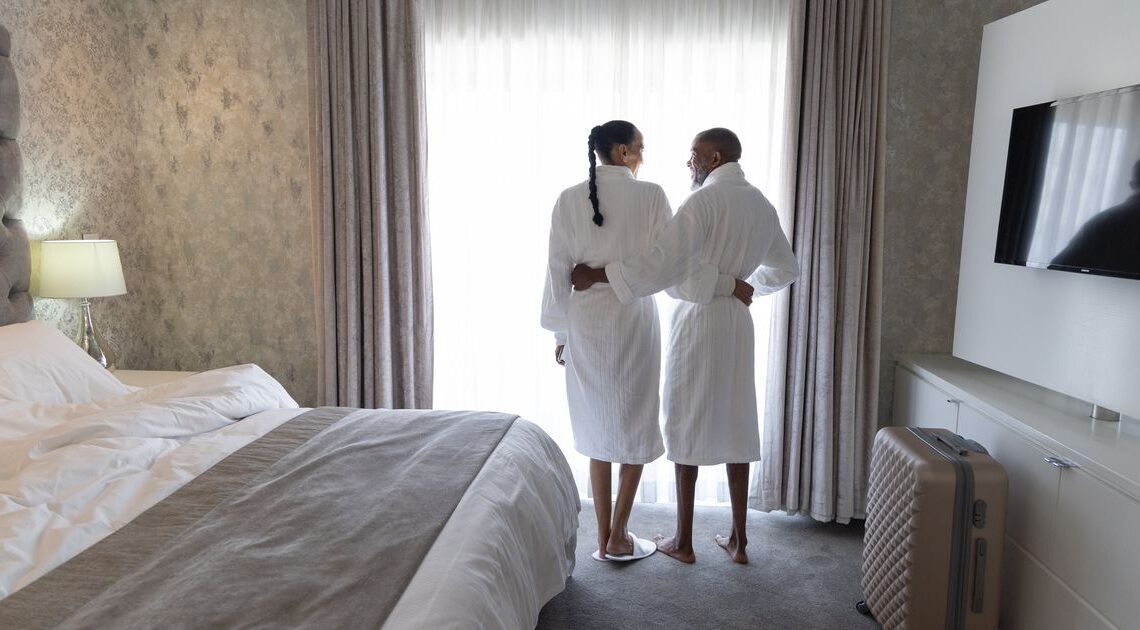From “gig-tripping” to “travel dupes” to “hush trips,” the number of new travel trends is seemingly endless. But perhaps the most appealing concept in the tourism space of late is the “sleepcation.”
So much of travel these days seems to involve running ourselves ragged trying to hit every amazing attraction we see on TikTok and Instagram. Sleepcations, however, take the polar opposite approach to vacation.
But what exactly is a sleepcation and how does it work? Below, travel experts break down the benefits and downsides of sleep tourism.
What is a ‘sleepcation’?
“At its root, it’s really as simple as it sounds: taking a vacation with the intention to get a good night or a few good nights of sleep,” said Tanner Saunders, a senior hotels reporter at The Points Guy. “It can be as simple as checking into a hotel in your own city with a special sleep package that includes enhanced ways to get a great night of sleep ― like a fancy bed, some advanced technology, sound machines or some sleep-enhancing supplements ― or a full-on sleep retreat where you meet with experts who help guide your physical and mental wellness to make sure you leave feeling renewed, refreshed and relaxed.”
Although the idea of taking a vacation with the aim of getting quality rest time is nothing new, the number of travelers interested in sleep tourism is growing. According to Skyscanner’s 2024 travel trends report, nearly 50% of American travelers surveyed say they are more mindful about sleep health now compared to a few years ago. The same research showed that “sleeping” topped the list of U.S. travelers’ main activities for their next vacation, outranking shopping, nightlife and wildlife spotting.
“While some wellness resorts have been focusing on sleep for years, now more and more resorts and hotels, from luxury to lifestyle and even budget-friendly properties, are making sure that sleep is as the forefront of a stay,” Saunders said. “For example, many luxury hotels are adding beds that use adaptive technology to enhance and track your sleep while some more budget-friendly options, often associated with a major hotel company, offer in-room meditation apps or sleep sounds.”
For example, the Malibu Beach Inn in Southern California features two designated “sleep suites,” and the Four Seasons Resort Hualalai on Hawaii’s Big Island offers an 80-minute “sweet dreams” massage treatment meant to promote a good night’s rest. Virgin…
Click Here to Read the Full Original Article at Travel…
